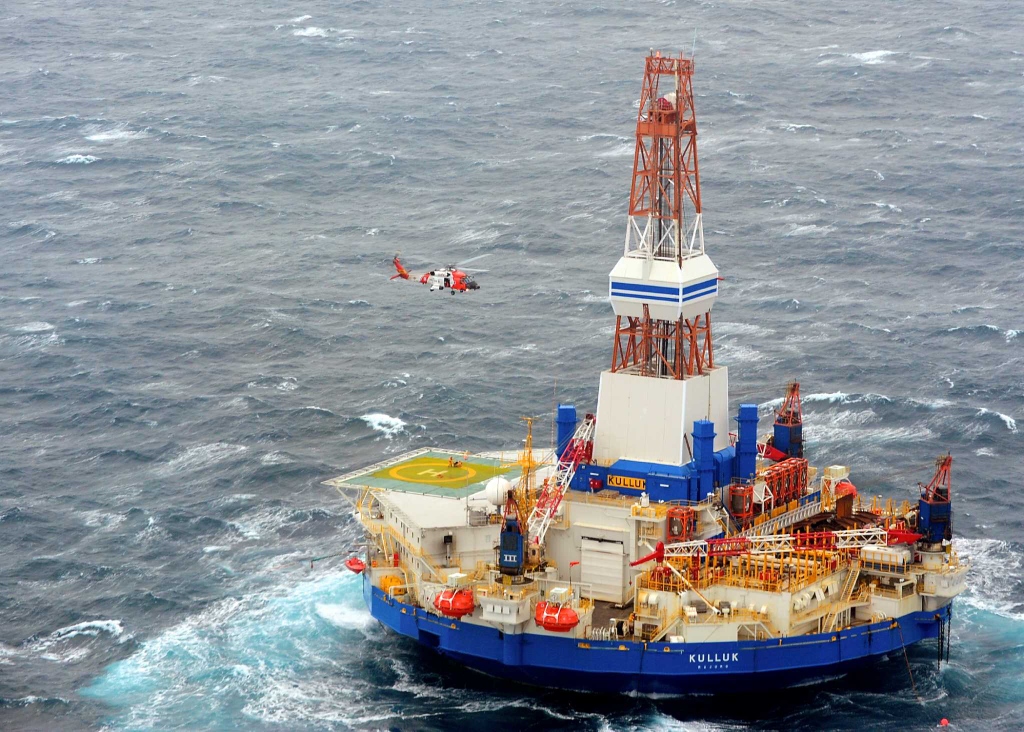Oregon Sen. Jeff Merkley, D-Ore., introduced the Stop Arctic Drilling Act of 2019 earlier this month to prohibit irresponsible and unacceptable drilling that puts at risk the health of local ecosystems, communities, and the global climate. The bill would prevent any new or renewed leases for the exploration, development, or production of oil, natural gas, or any other mineral in the Arctic Ocean planning area.
This bill is cosponsored by Senators Cory Booker, D-N.J.; Sheldon Whitehouse, D-R.I.; Richard Blumenthal, D-Conn.; Kamala Harris, D-Calif.; Elizabeth Warren, D-Mass.; Ron Wyden, D-Ore.; Bernie Sanders, I-Vt.; Bob Menendez, D-N.J.; Edward J. Markey, D-Mass.; Chris Van Hollen, D-Md.;, Gary Peters, D-Mich.; and Ben Cardin, D-Md.
“Our communities are already facing the devastating impacts of climate chaos,” said Merkley. “Arctic drilling will skyrocket carbon pollution, cause catastrophic damage to our global economy and environment, and could irreparably damage some of our most precious American natural treasures. That is beyond reckless, and it’s time for Congress to make this region permanently off-limits for oil and gas corporations.”
“Scientists around the world are warning that the window of time for humans to prevent the most dramatic effects of climate change by reducing fossil fuel emissions and switching to cleaner energy sources is quickly closing,” said Whitehouse. “Opening up the Arctic to drilling would be an enormous step backward at a time when we can least afford it.”
“Let’s face facts: A calamitous oil spill in these waters isn’t just a risk – it’s a near certainty,” said Menendez. “And if all the overwhelming evidence about the real threat offshore drilling poses to the health of our local communities, vital ecosystems, and climate will not persuade the Trump administration to abandon its reckless plans, Congress must act and act now.”
This month, 84 degree temperatures in the Arctic coincided with reports that carbon dioxide has hit its highest level in human history. In order to ensure our children have a livable planet, the United States must transition aggressively and rapidly away from conventional fossil fuels and toward the use of renewable energy, Merkley's office said in a press release.
Arctic drilling operations will open a tremendous, untapped carbon reserve, setting back critical efforts to address climate chaos, the press release said. Studies have repeatedly shown that we are approaching the end of our carbon budget, and that three-quarters of known fossil fuel reserves — which includes all the oil and gas reserves in the Arctic — must be kept in the ground if we are to avoid the worst effects of climate chaos, Merkley's office said.
In the interest of mitigating the most dire consequences of climate chaos and protecting the existence of countless endangered species populations, the Bureau of Ocean Energy Management removed Arctic leases from its five-year program for oil and gas development on the Outer Continental Shelf in 2016. In January 2018, however, the Trump administration released a new draft proposal to reopen offshore drilling leases three years ahead of schedule.
The Department of Interior estimates there is a 75% chance of a large oil spill exceeding 42,000 gals. of oil should leases in the Arctic be developed, which would threaten to destroy the region’s ecosystem. The Arctic is home to endangered species such as bowhead whales, polar bears, and ringed seals, as well as invaluable and fragile ecosystems that are critical to fisheries, migratory birds, indigenous populations and subsistence hunters.
Treacherous conditions also risk the lives of oil rig workers, who face extreme cold temperatures, rough seas, and extended darkness in the winter months. Shell’s initial venture into the Arctic in 2012 resulted in an abandoned oil rig, a Coast Guard operation to save eights lives, and ended Shell’s Arctic operations after one day. The closest Coast Guard station to the Arctic, in Kodiak, Alaska, is more than 900 air miles south of Alaska's North Slope, limiting its ability to respond to a spill and prevent severe damage to ecosystems, communities, and indigenous subsistence hunters.
The full text of the Stop Arctic Ocean Drilling Act of 2019 is available here.





